Meet the Unicorns: Elizabeth, Kyle, Jochum
Learn more about our teammates and their day-to-day work at VGV
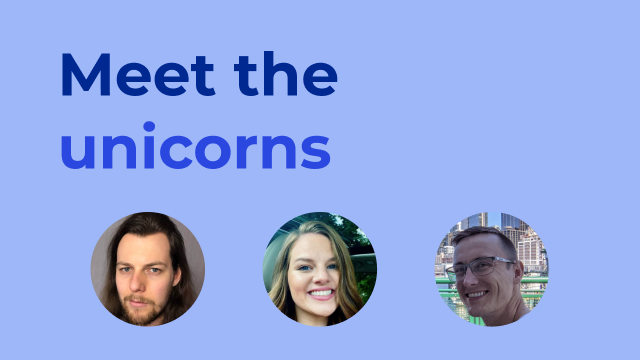
For over four years, we've been building high-quality Flutter applications with companies that span a variety of industries, from financial services to entertainment. Our goal is to create high-quality software that is flexible, adaptive, and built to last – for any platform.
Of course, none of this would be possible without our fellow unicorns! We talked to a few of our teammates to learn more about how they got into tech, their day-to-day work at VGV, and what they’re currently learning more about right now.
Elizabeth, Program Manager
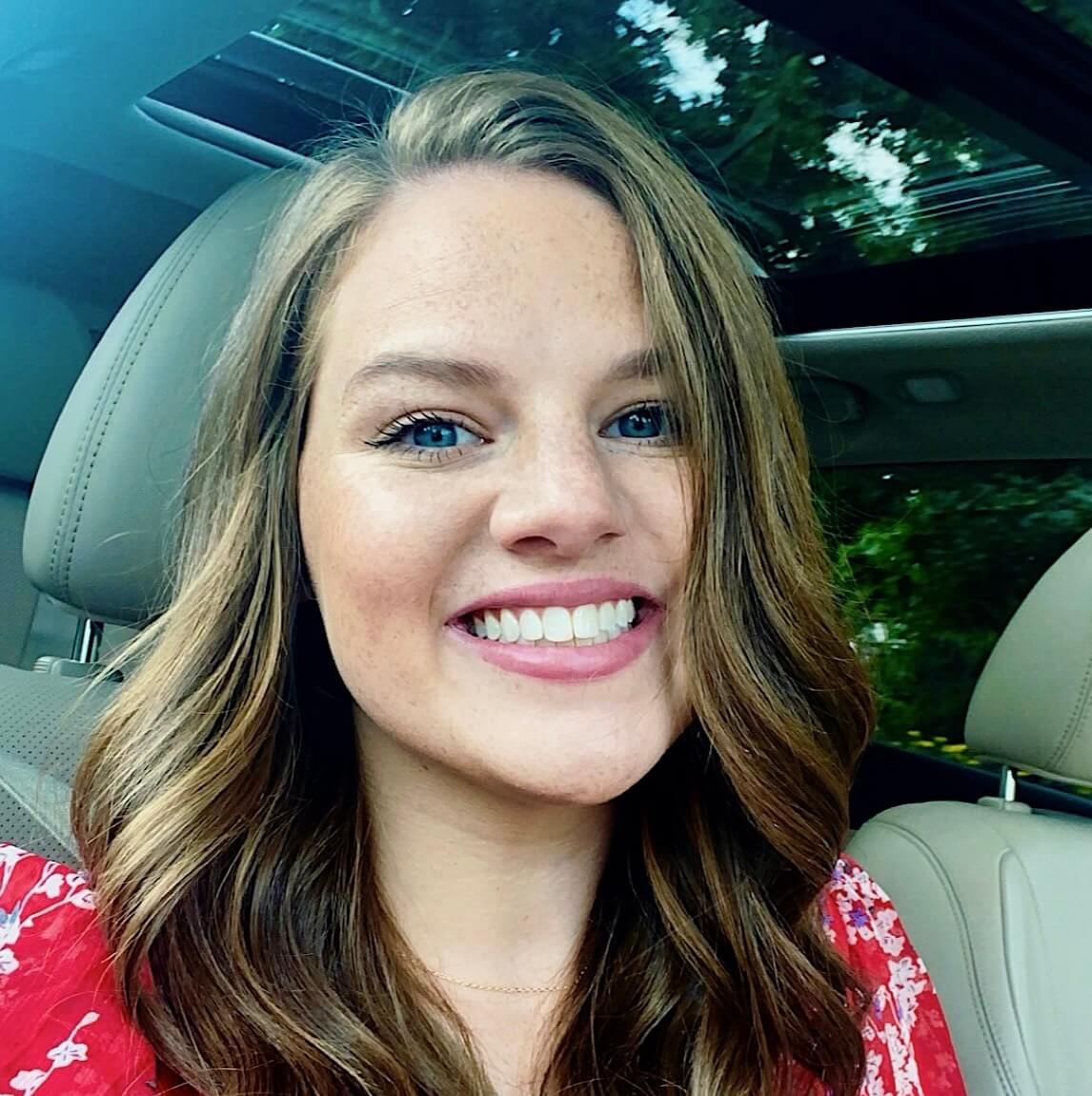
Why did you first become interested in tech?
In college I studied bio-electrical engineering with the intention of going to medical school at some point. When I graduated, I wasn’t ready to commit to medical school, so I took a job at Epic Systems because I wanted some exposure to the healthcare industry. It wasn’t my intention to get into tech, but working at Epic made it happen.
Now that I’m working full time in the tech industry, I couldn’t imagine anything else. In most other industries, your day would be a lot more standardized. Tech is definitely for fast-paced people. Every day looks so different, especially at VGV! Because we’re a consultancy, we do so many different things in one day and the tech we work on actually touches all of the industries. For example, I’ve worked on fintech, travel, and games projects.
What is a typical day like at VGV?
At VGV, Program Managers (PMs) are on multiple projects concurrently. My day usually consists of doing check-ins on each of these projects, sending weekly status reports to clients, and updating and delegating tasks to the VGV engineers on these projects. The full PM team also gets together on a regular basis and does roadmap and project planning.
The PM team at VGV is really trusted by clients and so we often get to stretch our skills into product management and even account management. We help shape where the product is going and maintain relationships with clients. Working with clients is one of my favorite parts about being a PM. I love helping them figure out where they’re going next and how they can achieve their goals.
What’s one interesting thing you’re learning more about now?
The PM team is really focused on ramping up our internal training right now. Two things we’re doing right now:
- We decided to all take a Udemy Flutter course, which is exciting! I’ve managed Flutter projects, and now I’m actually learning how to write my own Flutter app.
- We’re also taking a Google Project Management certificate course to make sure our PM competencies are strong.
In your opinion, what is the most important thing a program manager does?
I think the biggest thing is communication. So much of our job is making sure everyone is on the same page — both internally and with clients. I focus on making sure that all of our communication is transparent, positive, and concise.
What is it like working with engineers at VGV?
My favorite thing about VGV engineers is that they’re actually wizards! 🧙♂️ I’ve worked with developers in the past, but they were not like VGV engineers. At VGV, I can ask an engineer to help solve a problem and they actually get excited. Instead of saying, “This looks hard,” they figure out how to solve it.
The biggest thing I’ve learned from working with engineers (and I’m still learning) is how to properly estimate tasks within a project. I’m always striving to create reasonable timelines. This is one area where developers have grown — and have taught us PMs how to set reasonable expectations and deadlines.
Anything else?
The PM team at VGV is very much a team! Even though we’re on different clients, we do a really good job of collaborating with each other and trying to improve as a PM team.
Kyle Finlinson, Engineer
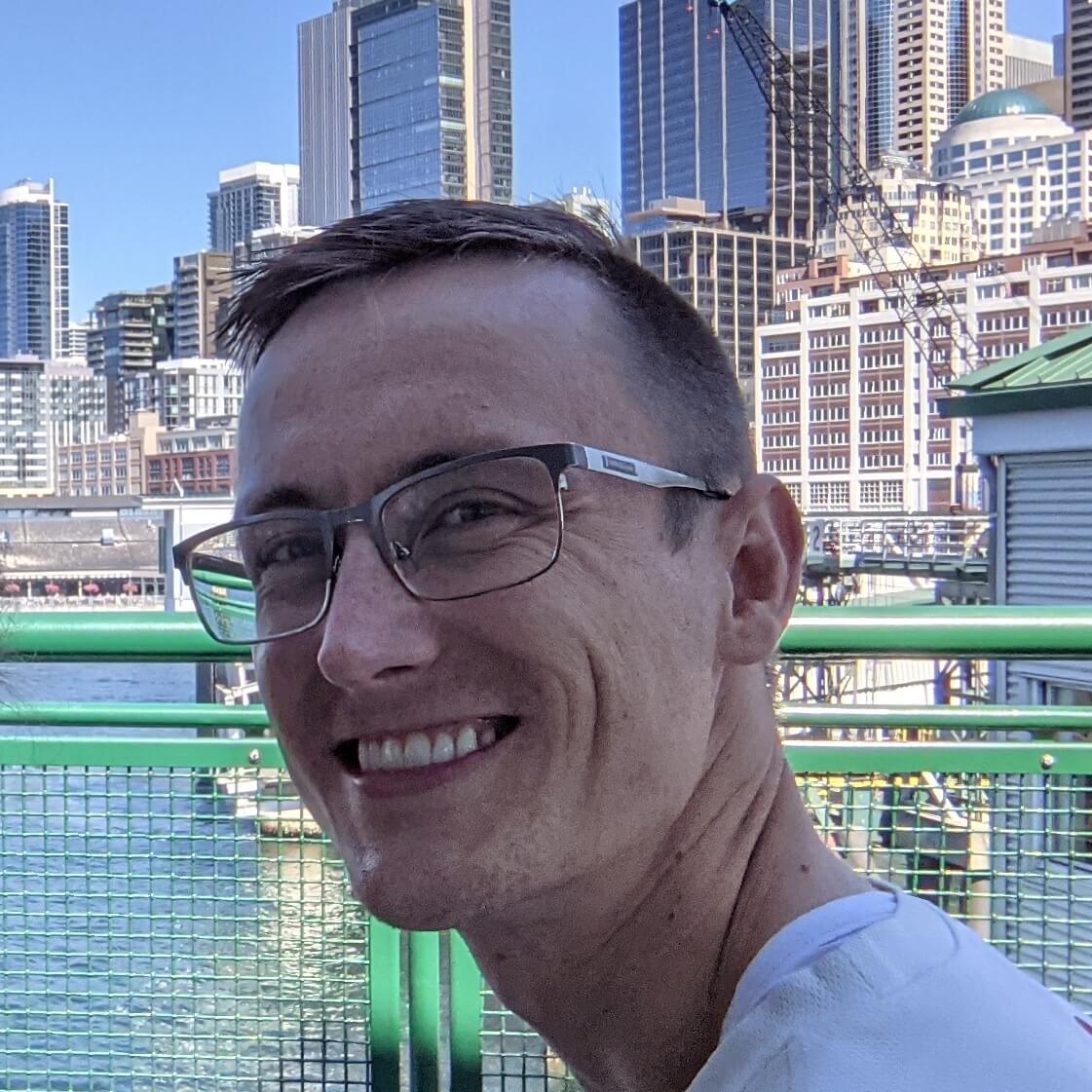
Why did you first become interested in tech?
My dad worked on IT for the state of Utah, so my family always had tons of computers around the house. Growing up, we always had DSL — that was one thing he would not compromise on. I remember when I was eight years old, I went over to a friend’s house and heard their modem dialing up. I thought, What is that? Why is it taking us four hours to download RollerCoaster Tycoon? So I was always around tech even from a young age.
When I was in high school, I attended an engineering camp at Utah State. One of the coding tasks they had us do was program metal pins in a PVC pipe. The goal was to get the pins to move up and down to allow a ping pong ball to fall through. It was so cool to write the code and watch things happen!
What are some of your go-to resources for learning about Flutter or Dart?
The official docs are always really helpful. I especially like the Widget of the Week videos. They give such a helpful overview — in a few minutes they cover what it is, how to use it, and provide a simple example. These videos make it really easy to understand the rest of the documentation.
What do you enjoy most about being a Flutter engineer at VGV?
One of my very favorite things about VGV is learning really useful skills with great people, and then using those skills across completely different projects. At VGV, we have a lot of expertise on the team. Learning from them and being able to build real solutions and solve real problems with companies across all kinds of industries and having a consistent toolkit, consistent workflow, and consistent solutions is awesome.
It’s kind of the opposite of what I was doing before. Before I was switching around to different projects with completely different toolsets and completely different languages. At VGV, I get to dig in really deep and really understand Dart and how it all works. For me, that's exciting and motivating.
What’s your day-to-day like?
I usually have a couple of stand-up meetings, and read and write lots of technical design proposals and code.
I work with teammates across the world in multiple time zones, so a lot of our communication is written communication. At times it can be frustrating, but it is also nice because it forces the team into an asynchronous workflow. I’m very interested in learning more about asynchronous workflows, deep work, and digital minimalism (as described in Cal Newport’s book), so time zones have been kind of helpful for task management.
Anything else?
Working with good people is huge! The phrase that I’ve heard to describe VGV is “humbly opinionated.” I really love that. It conveys the idea that this is how we think we should do something, but we’re completely open to suggestions if you have better ways to do it. It’s not arrogant, but it’s also not wishy-washy either. We have consistent best practices that are always open to improvement, discussion, and criticism.
Jochum, Open Source Engineer
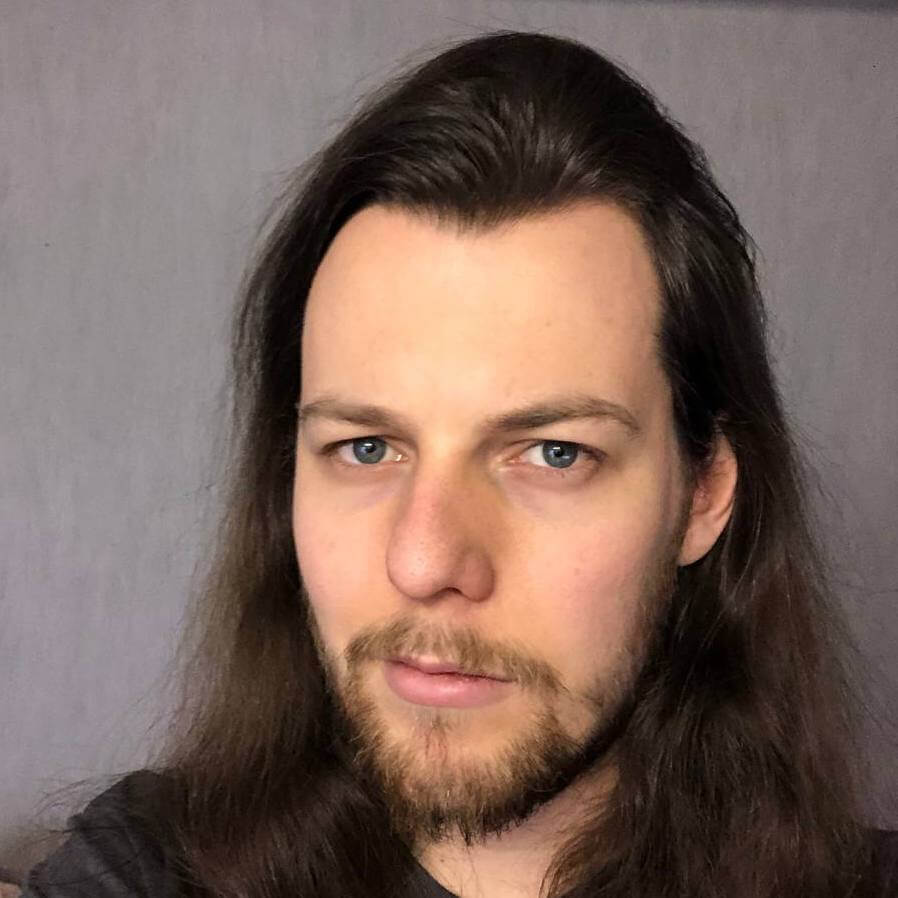
Why did you first become interested in tech?
It all started when I was in elementary school. My brother installed Ubuntu on my computer and I was super mad at him because I just wanted to play my PC games. I had to figure out how to get my games to work on the new operating system, which was quite interesting.
When I was around 12 years old, I started programming with HTML and CSS to make websites. From there I moved on to PHP and JavaScript. Around this time, I started playing with a thing called ComputerCraft, which allowed me to program within the Minecraft world. I found that really fun to do — I was essentially programming inside of the game (not too far off from what I’m doing now with Flame).
What is your typical day like at VGV?
I’m in a different timezone than some of my colleagues, so I start my day by checking my email and Slack to see what activity happened overnight. I follow up on any open source issues or comments and then have lunch. After, I try to focus on a particular task while taking breaks in between. It’s nice because my teammate Renan is in a similar time zone so we have a lot of overlap where we can collaborate.
A lot of my work recently has focused on Very Good CLI and Mason. With Mason, I’ve helped implement some new features. Based on my discussions with Felix, we’ll come up with new ideas and see if we can implement it. With Very Good CLI, I’ll often review code for bug fixes or new features. I’ve also done some work on Dart Frog, mostly reviewing pull requests and issues, and discussing where we’re going to take it next with Felix and Renan. Nothing is a one-person project on the Tooling and Open Source team!
What are some of your favorite open source tools or packages?
Flame is for certain one of my favorites.
I’m a big fan of what my package Umbra is capable of. In my opinion, it’s the way shaders should have been implemented in Flutter with a more friendly API. Everything is strongly typed, so instead of having to pass a list of numbers, you can pass in real instances of the thing you want to make. No need to do the conversion yourself.
Another open source project I like is raylib, which is a rendering framework for video games. It’s developed and maintained by one guy who has been doing it for eight years. It has a massive community and is a really interesting project.
What’s one interesting thing you’re learning more about now?
Right now I’m learning more about physics for my physics engine Physik. I’m trying to understand more about how to read math equations and implement them.
Flame already has a physics engine called Forge2D, which is a port of a popular physics engine called Box2D. Physik is another approach to implementing a physics engine that integrates nicely with Flame. I’m creating it to make it easier to create simulations. I noticed that you can make simulations with Forge2D, but it’s hard to set them up properly. With Physik, it’s a bit simpler. I’ve already created a particle collision simulation within a sphere, as well as a fire particle simulation. Next, I’m going to create a simulation with grass. If it all works well, I’m hoping to use these within a game in the future.
What do you enjoy most about being an open source engineer at VGV?
I enjoy the fact that I give back to the community. My job is to make sure that the community has high-quality tools that are up to VGV standards. This includes both tools maintained by VGV, but also tools used in the broader community, like Mason and the Flame Engine.
Join our team! Check out open job roles at VGV.
Check out the first article in our "Meet the Unicorns" series with Elias, Traci, and Óscar.
Insights from Our Experts
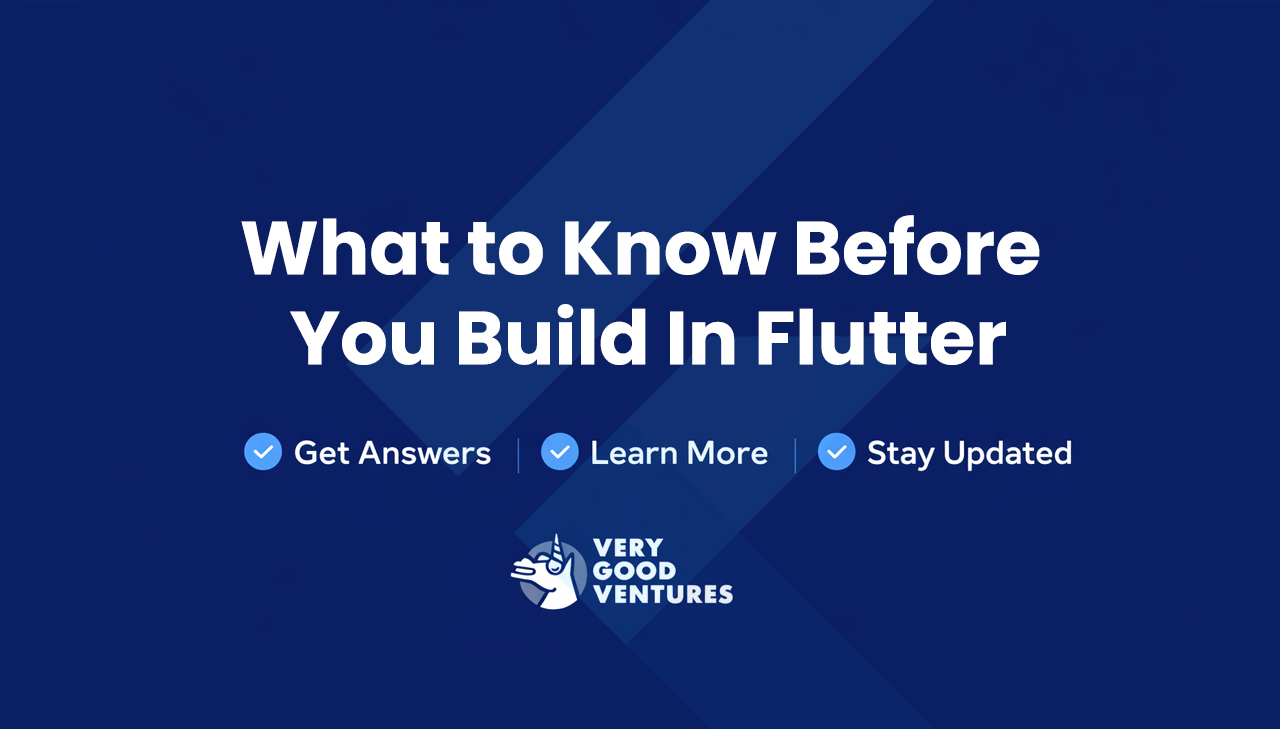
Flutter Development FAQs: Everything You Need to Know Before Building with Flutter
Lorem ipsum dolor sit amet, consectetur adipiscing elit. Suspendisse varius enim in eros elementum tristique. Duis cursus, mi quis viverra ornare, eros dolor interdum nulla, ut commodo diam libero vitae erat. Aenean faucibus nibh et justo cursus id rutrum lorem imperdiet. Nunc ut sem vitae risus tristique posuere.
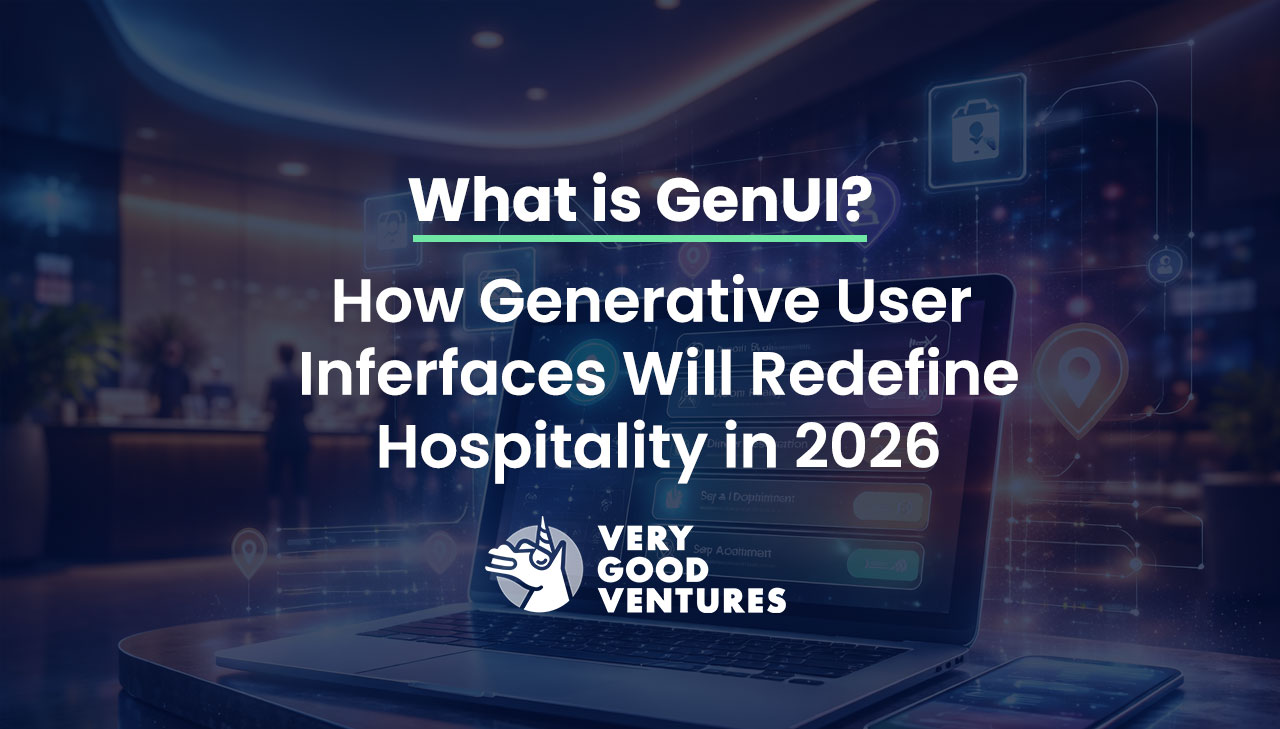
What Is GenUI? How Generative User Interfaces Will Redefine Hospitality In 2026
Lorem ipsum dolor sit amet, consectetur adipiscing elit. Suspendisse varius enim in eros elementum tristique. Duis cursus, mi quis viverra ornare, eros dolor interdum nulla, ut commodo diam libero vitae erat. Aenean faucibus nibh et justo cursus id rutrum lorem imperdiet. Nunc ut sem vitae risus tristique posuere.
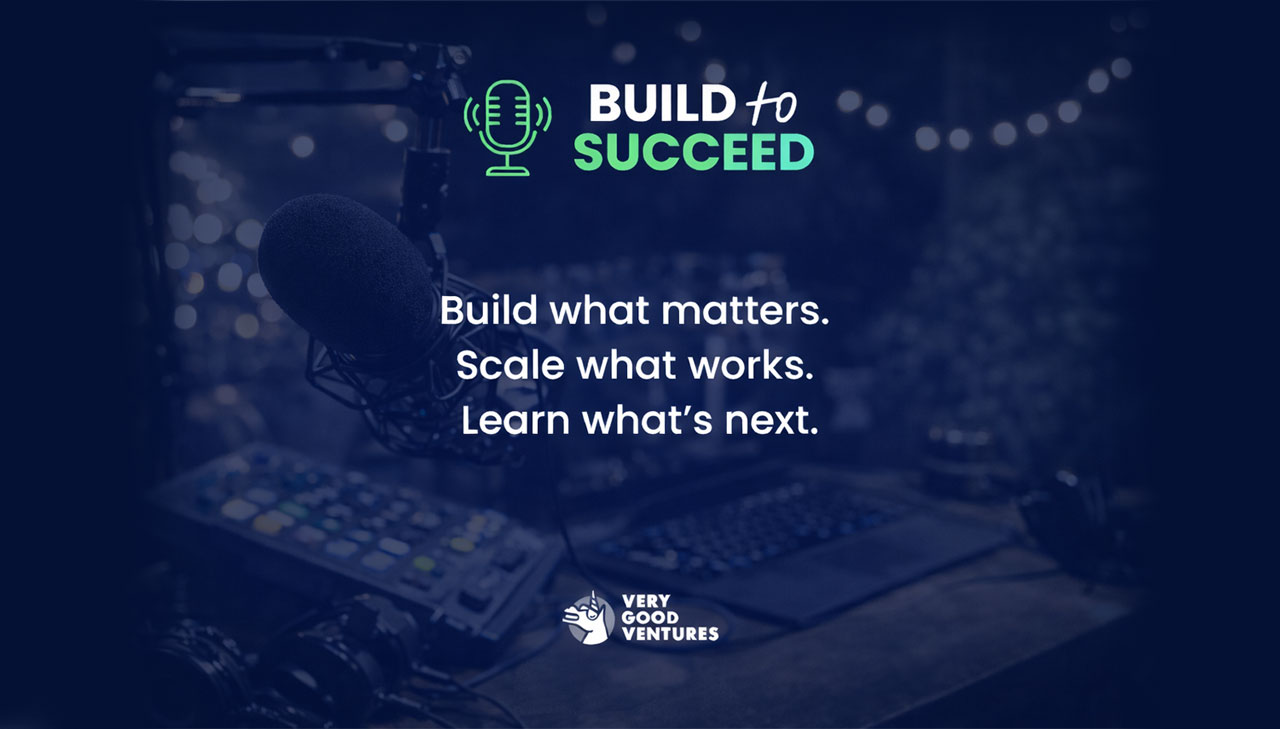
Today’s Engineering & Product Leadership: 5 Lessons From Build to Succeed
Lorem ipsum dolor sit amet, consectetur adipiscing elit. Suspendisse varius enim in eros elementum tristique. Duis cursus, mi quis viverra ornare, eros dolor interdum nulla, ut commodo diam libero vitae erat. Aenean faucibus nibh et justo cursus id rutrum lorem imperdiet. Nunc ut sem vitae risus tristique posuere.

